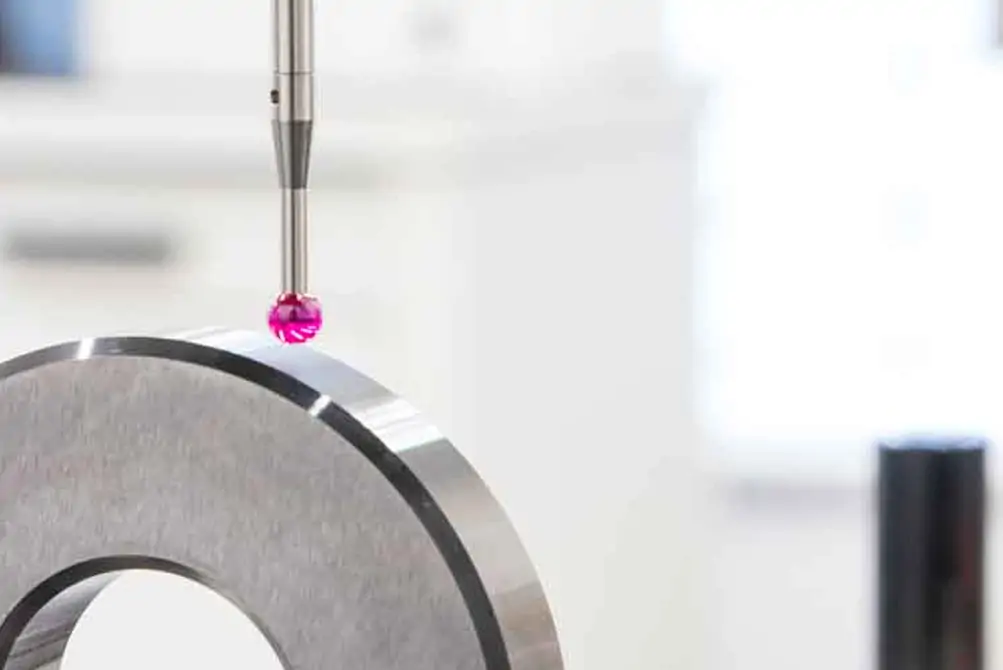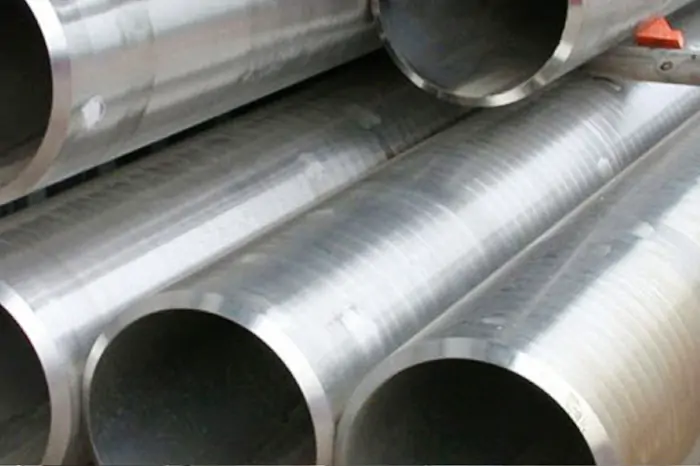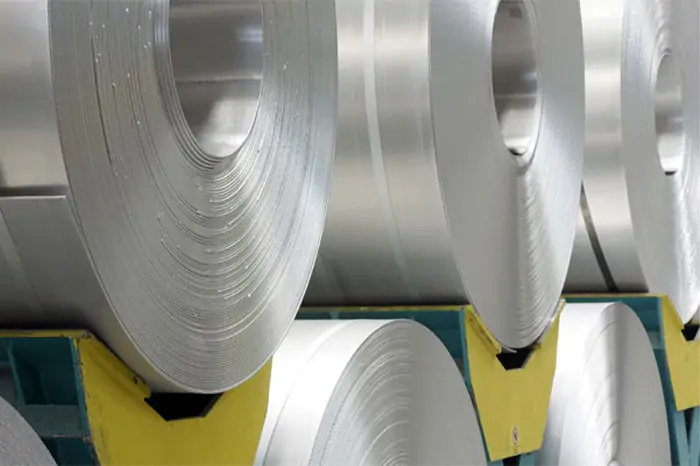In industries where harsh chemicals are a part of everyday operations, having materials that can withstand corrosive environments is crucial. The stakes are high, as the wrong choice of materials can lead to catastrophic equipment failures, costly repairs, and significant safety risks. This is where acid corrosion-resistant steel comes into play, offering a solution that not only enhances the durability and safety of industrial equipment but also provides cost-effective long-term performance. Let’s delve into the properties and applications of this vital material, exploring how it has become a cornerstone in various industries.
Table of Contents
ToggleWhat is Acid Corrosion-Resistant Steel?
Acid corrosion-resistant steel is a type of metal specifically designed to withstand acidic environments. These environments can cause severe damage to standard metals, leading to equipment failure and expensive repairs. The impact of such failures is not just financial; it also involves potential safety hazards and operational downtime, which can be detrimental to business continuity. Acid-resistant steels are formulated to combat these issues and extend the lifespan of industrial equipment, thereby playing a crucial role in maintaining operational efficiency and safety standards.
Composition and Types of Acid-Resistant Steels
Acid-resistant steels are typically a form of stainless steel or alloy steel that includes elements like chromium, nickel, molybdenum, and sometimes titanium. These elements are carefully selected and combined to enhance the steel’s ability to resist acid and other corrosive substances. The composition of these steels is critical as it dictates their performance in various corrosive environments, ensuring that they can handle different types and concentrations of acids without compromising their structural integrity.
- Stainless Steel: Often includes at least 10.5% chromium, which forms a passive layer of chromium oxide, preventing further surface corrosion. This self-repairing layer is what gives stainless steel its renowned durability and resistance to rust and corrosion, making it a top choice in many industries.
- Alloy Steel: Contains a variety of alloying elements that enhance mechanical properties and corrosion resistance. The specific combination of elements can be tailored to meet the demands of particular applications, providing versatility and customization to meet specific industry needs.
How Acid-Resistant Steel Works
The key to acid-resistant steel’s performance is its composition. The presence of chromium and nickel forms a thin layer of oxide on the surface, acting as a barrier to acids. This oxide layer is highly stable and adherent, which means it effectively protects the metal from further corrosion while maintaining the aesthetic and structural properties of the steel. This layer prevents corrosion and maintains the integrity of the metal beneath, allowing it to withstand prolonged exposure to harsh conditions without degrading.
Benefits of Acid Corrosion-Resistant Steel
Using acid corrosion-resistant steel in chemical processing and other industries offers several benefits that extend beyond basic corrosion resistance, impacting safety, cost, and operational efficiency.
Durability and Longevity
By resisting acid damage, these steels ensure that industrial equipment lasts longer, reducing the frequency of replacements and maintenance. This durability translates into fewer disruptions and a more reliable operation, which is essential in industries where downtime can result in significant financial losses. Furthermore, the longevity of acid-resistant steel contributes to sustainability by reducing the need for frequent material replacements.
Cost-Effectiveness
While the initial cost might be higher than regular steel, the reduction in maintenance and replacement costs over time makes it a cost-effective choice. The upfront investment is quickly offset by the savings gained from reduced downtime, lower repair costs, and extended equipment life. Additionally, the reliability of acid-resistant steel can lead to improved operational efficiency and productivity, further enhancing its value proposition.
Safety and Reliability
In chemical processing environments, safety is paramount. Acid-resistant steel ensures that equipment remains reliable, reducing the risk of leaks or failures that could lead to hazardous situations. The integrity of this steel under extreme conditions provides peace of mind, knowing that the equipment will perform as expected without posing a threat to personnel or the environment. This reliability is particularly important in industries where the handling of corrosive substances is a daily occurrence.
Applications of Acid Corrosion-Resistant Steel
Acid-resistant steels are used across numerous industries due to their ability to withstand harsh conditions. Their versatility and durability make them an essential material for applications where exposure to corrosive substances is unavoidable.
Chemical Processing Industry
Perhaps the most significant use of acid-resistant steel is in the chemical processing industry. Here, equipment regularly comes into contact with strong acids, necessitating materials that can withstand such exposure without degrading. The use of acid-resistant steel in this sector ensures that reactors, pipes, and storage tanks maintain their integrity and functionality, even when handling highly corrosive chemicals.
Petrochemical Industry
In the petrochemical industry, the presence of corrosive agents is common. Using chemical-resistant metal helps in protecting pipelines, storage tanks, and processing equipment. This is crucial for maintaining the safety and efficiency of operations, as any breach in equipment due to corrosion could result in significant environmental and financial repercussions.
Food and Beverage Industry
Surprisingly, the food and beverage industry also utilizes acid corrosion-resistant steel. The acidic nature of certain foods and beverages can corrode standard metals, affecting both safety and taste. By using corrosion-resistant materials, manufacturers can ensure product quality and safety, preventing contamination and preserving the intended flavor profiles of their products.
Pharmaceutical Industry
In the pharmaceutical industry, maintaining purity and safety is crucial. Corrosion-resistant alloys ensure that the equipment used in drug manufacturing does not contaminate the products. This is vital for preserving the integrity and efficacy of pharmaceuticals, as even minor contamination can have serious implications for patient safety and regulatory compliance.
How to Select the Right Acid-Resistant Steel
Choosing the correct type of acid-resistant steel depends on several factors, each of which must be carefully considered to ensure optimal performance and longevity.
- Environment: Consider the type and concentration of acid the metal will encounter. Different environments may require specific compositions to handle unique corrosive challenges effectively.
- Temperature: Higher temperatures can accelerate corrosion, so choose an alloy that maintains integrity at the operating temperature. This is particularly important for applications involving high-temperature processes, where standard materials might fail.
- Mechanical Requirements: Assess the mechanical demands of the application, such as strength and flexibility. The chosen material must not only resist corrosion but also meet the structural and functional needs of the application.
Maintenance of Acid-Resistant Steel
While acid-resistant steels are incredibly durable, regular maintenance is still crucial to ensure their longevity and optimal performance.
Cleaning and Inspection
Regular cleaning with appropriate chemicals helps maintain the protective oxide layer. This cleaning process not only preserves the steel’s resistance to corrosion but also enhances its appearance. Inspections should be performed to check for signs of wear or damage, ensuring early detection of potential issues. Timely maintenance can prevent minor problems from escalating into significant failures.
Avoiding Mechanical Damage
Physical damage can compromise the protective layer, making the steel susceptible to corrosion. Handle equipment carefully to avoid scratches or dents. Proper training and handling procedures can significantly extend the life of acid-resistant steel by preserving its protective properties.
Innovations in Acid-Resistant Steel
Research and development continue to enhance the properties of acid-resistant steels. Innovations in this field are crucial for meeting the evolving demands of modern industries and expanding the applications of these materials.
Developing New Alloys
Scientists are working on developing new alloys that offer even better resistance to a wider range of chemicals, expanding their applications further. These advancements could lead to the creation of materials that are not only more resistant but also more adaptable to different industrial needs.
Sustainable Practices
There is also a focus on making these steels more sustainable by reducing the environmental impact of their production and recycling. Innovations in manufacturing processes aim to lower energy consumption and emissions, aligning with global sustainability goals and reducing the carbon footprint of steel production.
Conclusion
Acid corrosion-resistant steel is indispensable in industries where chemicals and harsh environments are the norm. Its ability to withstand acid and other corrosive substances while maintaining structural integrity makes it a preferred choice in many sectors. By understanding its properties and applications, businesses can select the right materials to ensure safety, reliability, and cost-effectiveness. As technology advances, we can expect to see even more innovative applications and improvements in the properties of these essential materials, further solidifying their role in industrial innovation and sustainability.









